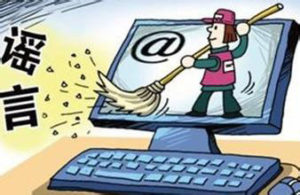HUAYUQUAN 话语权 is the right to speak and be heard, or to speak with authority. It is also the power to lead and guide debate, or to set the parameters of acceptable discourse. In the past few years, prominent Chinese intellectuals have adopted this second understanding of huayuquan to explain, with mounting urgency, how the country’s lack of influence in international financial, trade, security and media institutions translates to unfair treatment in China’s interactions with the world.
China’s lack of huayuquan in global commodities markets is a particular focus of anxiety. The People’s Republic has become the largest global consumer of commodities ranging from soya beans to copper. Some analysts perceive this escalating dependence on the importation of raw materials as exacerbating China’s vulnerability to exploitation. They believe foreign suppliers of these goods and their financial and government backers have used their influence over global market institutions to rig prices to China’s detriment.
Much analysis published in Chinese academic journals and industry newsletters is devoted to denouncing global cartels. But there is also a growing body of commentary in China explaining how factors defining the structural architecture of global trade inherently disadvantage Chinese customers. These factors include the predominance of the US dollar as a trading currency and the influence of Western-based financial institutions on commodity indexes.
Some commentators, like Fudan University professor Huang He 黄河, contend that global financial markets, laxly regulated by Western powers, encourage speculation in commodities markets, which distorts prices at the expense of Chinese buyers.

In this cartoon people are talking into a Weibo 微博 microphone. The caption says: ‘We all have the right to speak and be heard’
Source: Zhou Hansheng/manhua365.com
In a 2013 article in Foreign Affairs Commentary 外交评论 Huang, a political economist, also accuses the dominant, English-language global media of conniving to manufacture a ‘China threat’. This allegedly involves Western news organisations acting on behalf of their corporate and governmental masters, deliberately misrepresenting China’s objections to unfair treatment as constituting aggressive attacks on market freedom. On these and other topics these writers employ the concept of huayuquan to link the interests of Chinese firms trading in global markets with China’s ability to speak and be heard by the institutions that guide global trade and commerce.
China’s dependence on imported iron ore is a case in point. Huang believes that open financial markets and the free flow of capital, as well as the rapid development of Chinese futures markets would strengthen China’s huayuquan. He blames China’s disorganised and fragmented import sector and its relatively closed and immature financial sector for the raw deals he thinks China has had to put up with both when the old benchmark negotiation system set iron ore import prices and in the arrangements that have succeeded it. In his view, for China to enjoy a huayuquan commensurate with its rising stake in commodities markets, the futures markets that determine global prices of iron ore and other commodities for which China is the principal buyer should be located in China. This would require Beijing to remove restrictions on the movement of capital across borders. It is one of many steps he believes must be taken to ‘build a system that allows China to be heard globally, so that the normal demands of China can be made with its own voice’.
Others call for a more actively defensive strategy. On the same question of iron ore, for example, Jiao Yushu 焦玉书, a consultant to the China Metallurgical Mining Enterprise Association, pushes for import substitution. He believes that domestic exploration and production of iron ore ‘must exceed the fifty percent threshold needed to break the global cartel’. This thinking appears to be gaining favour in policy circles. In March 2014, the State Council commissioned a plan to lift domestic iron ore production dramatically over the next ten years — despite Premier Li Keqiang’s declaration of a ‘war on pollution’ just weeks before.
Wang Jionghui 王炯辉, a senior aide to the president of mining giant Minmetals, rejects import substitution, insisting that the costs of bringing more low-quality Chinese iron ore to market would push prices even higher. As global iron ore capacity expands, he expects that the larger international firms could ‘band together to restrict production, artificially creating a constriction of supply, maintain high prices and thus seize monopoly profits’. For Wang, the solution lies in China sourcing thirty to forty percent of its imported iron ore from what he calls ‘overseas bases’, mines in which there is Chinese investment. He predicts that over ten years, savings ‘would exceed US$220 billion’.
What Huang, Wang and Jiao have in common is a conviction that China’s lack of huayuquan is a quantifiable liability. To strengthen China’s huayuquan is to redress the injustice inherent in the global status quo. The increasing use of huayuquan in Chinese discussions around international trade parallels and aligns with a more robust foreign policy. The urgency with which huayuquan is invoked, however, comes more from a heightened sense that the lack of it imposes economic costs.



